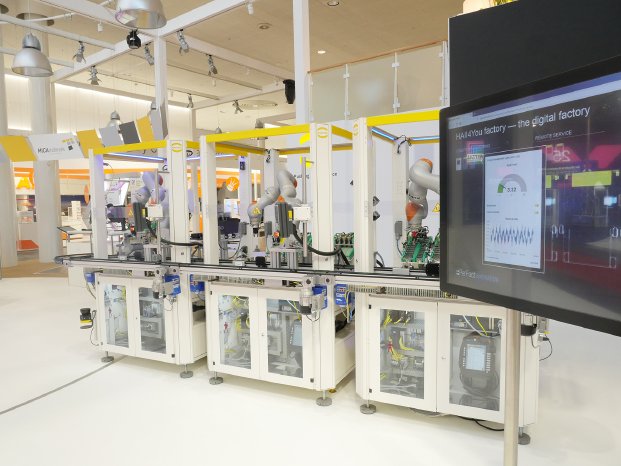Two thirds of the German companies already use cloud computing. There has been a recent increase in the combination of different service models, according to the analysis in the "Cloud Monitor" of KPMG and Bitkom. The authors foresee in the near future that nearly all companies will not get around the topic of cloud computing.
Requirements for cloud services in mechanical and plant engineering
Along with the large cloud-providers, component, sensor and actuator manufacturers, platform providers as well as mechanical and plant engineers rely on cloud infrastructure or platform solutions. Increasingly mechanical and plant engineers use the digital service offerings provided by these platforms, such ascondition monitoring or predictive maintenance.
Users see these digital services as beneficial, but not unproblematic. They intervene in your own IT infrastructure, have access right down to the field level, receive sensitive production data and can, where required, change the online machine parameters. The number of external companies that request access to your own facilities is increasing. For machine users, control and security-related protection against such services is therefore essential at all times.
Providers of cloud-based systems and services see themselves as up against the challenge of communication and data exchange becoming increasingly more complex. Due to the different cloud infrastructure and platform solutions, multi-cloud applications are being created with different proprietary application and transport protocols, as well as different security standards. The missing interoperability increases the effort and obstructs and prevents the implementation of new business models.
Initiative for standardisation of industrial cloud communication
HARTING supports the standardisation initiative DIN SPEC 92222 that currently consists of 31 companies, associations and research institutes. Consideration is being given to the communication of machines (or so-called edge devices) in the cloud of a production company as well as cross-company collaboration to other cloud systems. "The new standard intends to safeguard the interoperability and communication between the participating IT subsystems as well as physical devices. The standard is aimed pariculary at operators and manufacturers of machines and plants who offer and use cloud-based services and systems as well as at providers of remote services", says Christoph Legat, Software Professional at Expleo Group. The technology company is active in leading the standardisation initiative and is showing the demonstrator as an exemplary use of cloud connectivity at HARTING (hall 11/stand C15) at the HANNOVER MESSE.
DIN SPEC 92222 implements a reference model for the industrial "Cloud Federation". The goal: universal and standardised communication from the field device through to the multi-cloud-application on the basis of OPC UA. Participating companies include Bosch, IBM, Fujitsu, Kuka, Microsoft, the associations VDMA and Bitkom as well as Frauenhofer research institutes. To achieve the goal of uniform and standardised communication, the number of technologies, norms and standards to be used should be kept to a minimum. Uniform interfaces for routing between clouds are defined as a prerequisite for multi-cloud infrastructure.
Further information:
www.HARTING.com/DE/en-gb/news/press-release


